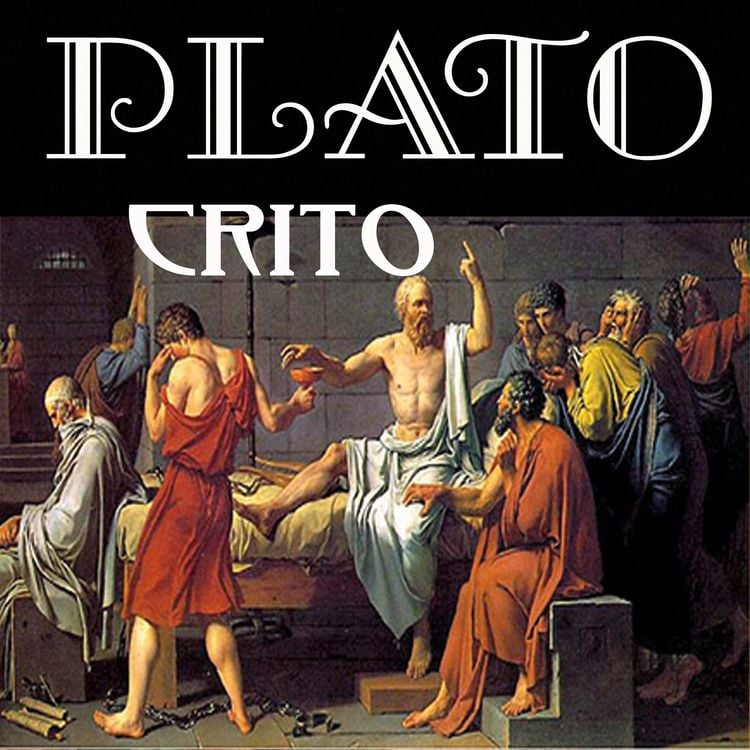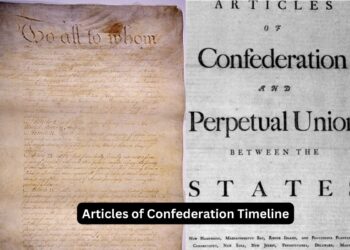Table of Contents
ToggleIntroduction to Plato and Crito
The Crito By Plato Summary And Themes Plato, one of the most prominent philosophers of Ancient Greece, wrote a series of dialogues in which his teacher, Socrates, is the central character. Crito, one of these dialogues, is set in the prison cell where Socrates is awaiting his execution. The dialogue occurs shortly after the trial in which Socrates has been sentenced to death for allegedly corrupting the youth and impiety. In the Crito, Socrates’ friend, Crito, visits him in prison and urges him to escape, as he believes that Socrates’ death is unjust. However, Socrates, ever committed to his principles of justice and virtue, refuses to escape, offering a profound philosophical discussion on duty, justice, and the role of the state.The Crito By Plato Summary And Themes
The Crito By Plato Summary And Themes The dialogue explores the themes of obedience to the law, personal integrity, the consequences of one’s actions, and the relationship between the individual and society. It presents a challenge to the idea of civil disobedience and asks whether it is ever acceptable to disobey the laws of the state.The Crito By Plato Summary And Themes
Summary of Crito
The dialogue begins with Crito visiting Socrates in his prison cell at dawn. Socrates is awaiting his execution by drinking hemlock, having been convicted by the Athenian court. Crito has arranged for Socrates’ escape and urges him to take the opportunity to flee Athens and live in exile, arguing that Socrates’ death would be a great loss to his friends and to philosophy.The Crito By Plato Summary And Themes
Read More
Crito’s Argument for Escape: Crito presents several arguments to persuade Socrates to escape. His first argument is practical: if Socrates refuses to escape, Crito believes it will be seen as a failure on Socrates’ part to preserve his own life. He fears that people will think poorly of Socrates, believing he chose to die unnecessarily when he could have escaped and lived. Furthermore, Crito worries about how his own reputation will be affected. He believes that by not helping Socrates escape, he will be seen as failing a dear friend and abandoning him in a time of need.The Crito By Plato Summary And Themes
Next, Crito argues that it would not be unjust for Socrates to escape. He claims that Socrates has been unfairly condemned, and since the trial was unjust, Socrates has no obligation to obey the decision. He even goes as far as to say that it is better for Socrates to live and continue to educate others than to die.
Socrates’ Response:
Socrates, however, rejects all of Crito’s arguments, offering a philosophical defense of his position. His response is grounded in his belief that one must live a virtuous life in accordance with the principles of justice, no matter the personal cost.The Crito By Plato Summary And Themes
- Obedience to the Law: Socrates first questions the premise that he should escape because the trial was unjust. He insists that while the verdict may be wrong, it is important for him to respect the laws of Athens. In his view, the laws of the state have played a critical role in shaping his life, and disobeying them would be unjust. Socrates argues that by living in Athens, he has implicitly agreed to abide by its laws, just as one must respect a social contract.According to Socrates, the laws have nurtured him, provided a stable society in which he could live and practice philosophy, and granted him his citizenship. Therefore, breaking the laws, even if he has been wronged by them, would be tantamount to harming the very principles that have allowed him to thrive. To flee Athens would be to undermine the authority of the laws, and Socrates cannot, in good conscience, act in a way that violates his lifelong commitment to justice.The Crito By Plato Summary And Themes
- The Social Contract: Socrates extends this idea further by introducing the notion of a social contract. He suggests that when an individual chooses to live within a society, they tacitly agree to the laws that govern it. He likens his relationship with Athens to that of a child to a parent, and he sees it as a moral duty to obey the laws, even if they lead to an unjust punishment. In Socrates’ view, the laws of the state are not mere rules but represent a binding agreement between the individual and the community.The Crito By Plato Summary And Themes

The Crito By Plato Summary And Themes Socrates also explains that escaping from prison would harm the city of Athens, the very city that has nurtured him and his philosophy. By violating the laws, he would be participating in the destruction of the social fabric. Socrates does not want to undermine the city’s legitimacy or create instability, which would do more harm to the people of Athens than if he simply accepted the punishment.The Crito By Plato Summary And Themes
- The Voice of the Laws: To reinforce his argument, Socrates imagines that the laws of Athens speak to him directly. In a personified voice, the laws argue that he has benefited from their protection and that he owes them his allegiance. The laws argue that by disobeying the court’s verdict, Socrates would be committing an injustice against the laws themselves and the citizens who abide by them. According to Socrates, the laws have provided a framework for him to live a virtuous life, and as a result, he must honor their decisions.The Crito By Plato Summary And Themes
- The Role of Justice: Socrates emphasizes that justice must come first, even in the face of personal loss. He argues that escaping from prison would send the wrong message to others about the importance of adhering to the laws. For Socrates, justice is not conditional on personal gain or loss, and he is committed to doing what is right, regardless of the consequences for himself.The Crito By Plato Summary And ThemesThis commitment to justice reflects Socrates’ broader philosophy that one should always act in accordance with virtue, even if it leads to hardship or personal sacrifice. He believes that living unjustly—by breaking the law, for example—would corrupt the soul, and the health of the soul is far more important than any temporary worldly benefit.The Crito By Plato Summary And Themes
- The Immortality of the Soul: Socrates also discusses the immortality of the soul as a consideration in his decision. He suggests that one should not fear death, as the soul is eternal and cannot be destroyed. Therefore, Socrates sees his death as an opportunity for his soul to be freed from the constraints of the body. He views death not as an evil to be avoided at all costs but as a natural part of life. In this view, Socrates feels no personal fear of dying, because his soul will live on, and his moral integrity will be preserved beyond death.The Crito By Plato Summary And Themes
Read More
Key Themes in Crito
-
- The Nature of Justice: The central theme of Crito is the nature of justice. Socrates argues that justice is absolute and that one should always act in accordance with what is just, regardless of personal consequences. This view of justice contrasts with Crito’s more pragmatic understanding, which focuses on personal relationships and the immediate need for survival. Socrates’ insistence on following the law—no matter how unjust it may seem in the case of his trial—demonstrates his belief that justice is more important than personal gain or even life itself.The Crito By Plato Summary And Themes
- The Social Contract and Obedience to the Law: Socrates introduces the idea of the social contract in Crito. By choosing to live in Athens, he believes he has implicitly agreed to follow its laws, even if those laws lead to his death. Socrates argues that laws are the foundation of order in society, and breaking them would lead to chaos and the breakdown of social harmony. His refusal to escape is thus not an act of submission but one of philosophical consistency and moral integrity.The Crito By Plato Summary And Themes
- Civil Disobedience and Moral Responsibility: The dialogue also raises the question of civil disobedience—whether it is ever morally acceptable to break the law in the name of a higher moral principle. Socrates firmly rejects the idea that it is just to disobey the law, even when the laws seem unjust. This presents a challenge to the modern concept of civil disobedience, in which individuals may break laws they believe to be morally wrong, as exemplified by figures like Martin Luther King Jr. and Mahatma Gandhi. Socrates’ position raises important questions about the tension between individual conscience and the authority of the state.The Crito By Plato Summary And Themes
- The Role of Philosophy in Society: Crito also highlights the role of philosophy in society, particularly the role of the philosopher in maintaining moral integrity. Socrates’ commitment to his philosophical principles, even at the cost of his life, suggests that philosophy is not merely an academic pursuit but a way of living. For Socrates, the practice of philosophy is a way of seeking truth and justice, and it is the highest calling. By adhering to his philosophical convictions, Socrates demonstrates that the philosopher’s duty is not just to seek knowledge but to live a virtuous life, no matter the external circumstances.
- Death and the Afterlife: Another important theme in Crito is Socrates’ view on death. He does not fear death, as he believes the soul is immortal and that death is simply a release from the body. This belief in the immortality of the soul influences his decision not to escape: since he is not afraid of death, he does not need to live at any cost, and his commitment to justice remains his top priority.The Crito By Plato Summary And Themes

Conclusion
In Crito, Plato presents a powerful philosophical argument about justice, duty, and the individual’s relationship with the state. Socrates’ decision to remain in prison and face his death rather than escape is a profound reflection of his commitment to virtue and the belief that one must always act in accordance with what is just, even when faced with hardship. Through this dialogue, Plato explores fundamental questions about morality, law, and personal integrity, making Crito one of the most important works in the Western philosophical tradition.
Read More
(FAQ)
1. What is Socrates’ reasoning for not escaping from prison?
Socrates refuses to escape from prison because he believes that doing so would violate his commitment to justice. He argues that by living in Athens, he has implicitly agreed to abide by its laws, even when they are unjust. He views his escape as an act that would undermine the very laws that have allowed him to live a virtuous life.The Crito By Plato Summary And Themes
2. How does Socrates justify his obedience to the laws of Athens?
Socrates justifies his obedience to the laws by arguing that he has benefited from them his entire life. In a sense, by living in Athens, he has entered into a social contract with the city and its laws. To disobey them, even in the face of an unjust conviction, would be to harm the city and disrupt the order that the laws provide.
3. What is the significance of the “voice of the laws”?
The voice of the laws represents Socrates’ personified concept of the laws of Athens, which argue that he has benefited from them and thus has a duty to obey them. This serves as a powerful rhetorical device to emphasize the authority of the laws and the importance of upholding justice.
4. Does Socrates fear death?
No, Socrates does not fear death. He believes that the soul is immortal and that death is merely a transition to the afterlife. His lack of fear of death plays a significant role in his decision to accept his execution rather than escape.
5. What is the central theme of Crito?
The central theme of Crito is the relationship between the individual and society and the nature of justice. Socrates argues that it is always better to act justly, even if it leads to personal harm. He emphasizes the importance of adhering to the law and upholding one’s moral principles, regardless of the consequences.The Crito By Plato Summary And Themes
Read More

















